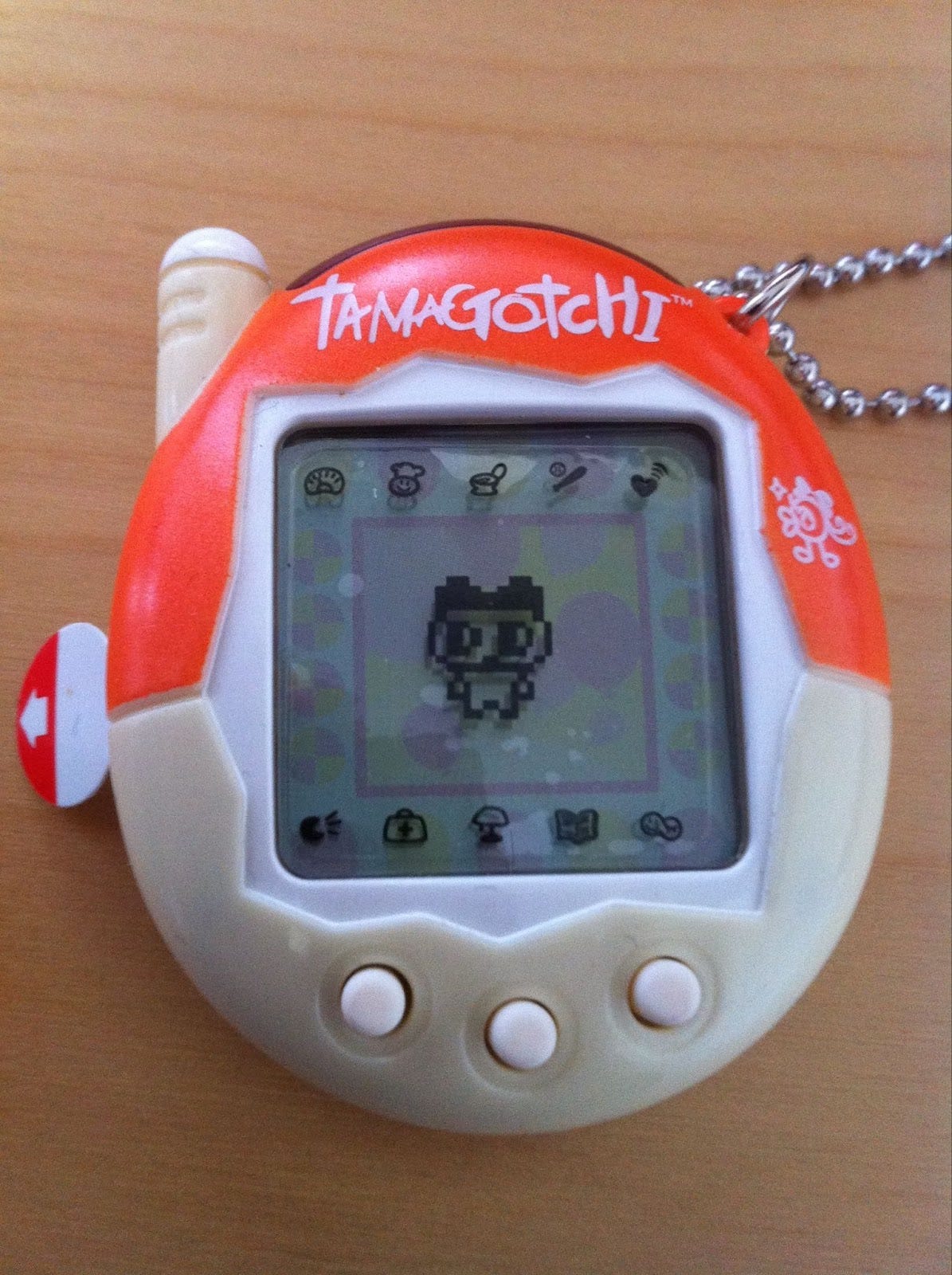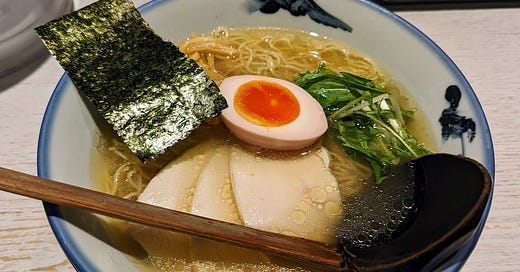Hachiro Sasaki knew his calm and ordinary evening was about to turn stressful and unhappy when the American was three-quarters of the way through his beer but had eaten less than one-quarter of his ramen.
He wiped the sweat from his forehead, but more instantly appeared. So heavy from perspiration was his hachimaki—headband—that it threatened to fall in front of his eyes.
Hachiro anxiously eyed the American as he guzzled the remaining Asahi Super Dry and then waved the glass at Hachiro to indicate “another beer.”
Fifty-two-year-old Hachiro Sasaki had guessed the man in the backward Yankees baseball cap would be trouble the moment he walked through the door of his restaurant. It wasn’t that the man was a Westerner that was the problem. He had nothing against Westerners, even though few found his small restaurant in the out-of-the-way neighborhood of Kanazawa in Yokohama.
The American had taken five minutes to puzzle through the ticket vending machine—shokken—using the translation app on his phone. At Zawa Ramen, like most ramen restaurants, customers first select and pay for their meals and drinks at the ticket machine inside the restaurant’s door and then pass the ticket to the chef.
Hachiro had chosen a minimalist design for Zawa Raman because he thought that would accentuate the spice and meat scents floating through the restaurant. A simple space with three tables that seat two people each and counter space for another six customers.
A single person could staff a shokken because that sole employee, usually the chef and owner, didn’t also have to handle orders and payments.
If a customer wanted more to eat or drink, they revisited the shokken and bought another ticket—and that was the part of the system Hachiro knew that the American was ignorant of.
Hachiro shook his head and pointed to the shokken.
The man raised his empty beer glass higher, bellowing in English, “Another!”
The eleven other customers at Zawa Ramen paused eating and stared at the American.
Hachiro stabbed his finger at the shokken more vigorously and rubbed his other hand’s thumb and forefinger together, the universal sign for money.
I don’t have time for this! I have to cook!
Cooking ramen was Hachiro’s life; feeding customers was his passion. Ramen wasn’t ordinary food; he had trained, apprenticed, and worked hard for many years before opening his restaurant at age forty.
If I wanted to be in customer service, I would have opened a pharmacy or cosmetics store, Hachiro thought.
Hachiro’s father, Akimitsu, a priest, had wanted Hachiro to join a temple, but when he was young, he was stubborn and had his heart set on becoming an itamae, a ramen chef, making meals of masterful flavor and art. Hachiro was still stubborn, but not so obstinate that he didn’t occasionally wish he had become a priest. Especially tonight.
The American stood.
Finally, he gets it, Hachiro thought.
The man walked through the small gate that separated the open kitchen from the L-shaped counter, where customers sat.
He’s got to be kidding.
Never in Hachiro’s life had this happened; never had a customer walked into his and only his domain, the kitchen. Steam escaped Hachiro's nostrils, and he bit his lip, fighting the urge to scream.
He eyed the nearest pot and wondered how loudly the American would scream if he ladled the broth on his head.
Ochitsuite, stay calm. This is just one bad moment in a lifetime of a million moments.
He took three slow breaths, thought of days at the beach and in the forest, gently grasped the man’s hand, and guided him the half dozen steps to the shokken, where Hachiro tapped on the button for beer.
The man said something in English, his voice still excessively loud but no longer screeching. He retrieved his wallet from his back pocket and slipped a 1,000-yen note into the machine.
He figured it out—a miracle, at last.
Hachiro’s heart slowed—still racing, but better.
Over the next twenty minutes, the American repeated the process twice more, eventually consuming four beers. When he finished the fourth, he sang loudly. Hachiro didn’t know the song and didn’t want to know it.
The American snapped selfies and photos of other patrons eating. Don’t do that!
Customers hurriedly slurped their ramen. Four exited.
Hachiro’s blood was like lava. His belly ached and his bones, strong for a fifty-two-year-old because he worked on his feet all day at a job he loved, became jelly. He pressed his finger to his lips and shhed the American, assuming that a finger to the lips and a shh-sound were part of the universal language every person on Earth knew.
The American did not stop singing. Worse, he sounded like a rusty door hinge.
While singing, the American staggered to the shokken—not another beer, but, yes, another beer!—and then walked through the gate to the kitchen and slapped the beer ticket into Hachiro’s palm.
He returned to his counter seat, still singing offkey.
Two of the remaining six customers stood, bowed to Hachiro, and said, “Gochisousama deshita,” thank you for the meal, and left.
The expressions on the faces of the four remaining regulars told Hachiro that they would be leaving imminently, too.
He worried they’d never eat here again. And who could blame them? All it would take is for this man to post a picture on Instagram, and suddenly, Zawa Ramen would become a tourist destination.
What choice do I have? I must stop the man from singing. I must stop him from ever doing this again. I must especially stop him from posting about us on social media. He doesn’t belong in Japan. He should have visited France or Canada or stayed in America.
Hachiro wished he knew English and could demand all that, but what he was about to do would be even more effective.
Hachiro fished his Tamagotchi from his pocket, the three-button, egg-shaped electronic game his father had given him just before he died. Tamagotchi, a digital pet, was an extreme fad in the 2000s, a quarter century ago. He carried it everywhere because his father told him he would need it one day, but there was no way to know when that would be.
“This Tamagotchi is like no other; use it wisely,” Aoto Sasaki said
Once you start the Tamagotchi game, you must care for your digital pet by constantly feeding it, cleaning up after it, playing with it, and giving it medicine when needed—or it dies. Tamagotchi was fun for the first few hours, but after that, many Tamagotchi died, and many children cried.

Hachiro placed the small plastic toy and beer on the counter in front of the American.
He picked it up and stopped singing as Hachiro had hoped. The American squinted at the purple toy with its two-and-a-half centimeter black and white screen, snapped a photo of the Tamagotchi, and flicked at his phone’s screen.
He’s reading instructions! Hachiro thought.
The American smiled and started playing with the Tamagotchi.
The digital pet came alive with all its cuteness. It looked a little like a dog or a cat or rabbit or whatever your imagination and heart wanted it to be.
To Hachiro, the Tamagotchi looked like hope.
He’s playing, not singing.
Hachiro smiled, too.
The next afternoon at 3 p.m., the American burst into Zawa Ramen.
His once thick, vibrant hazel hair was now a few strands of gray; his smooth mid-twenties skin was a network of wrinkles and age spots, as if exposed to a thousand years of sun. He limped, and his height had diminished like somebody had removed bone at his spine and legs. As he spoke, one of his front top teeth wobbled. “What did you do to me? What’s happening?” He screeched, but his voice was no longer deep and resonant; it was now gravelly and tentative. “I know you did something. Did you poison my beer?”
Hachiro strode from the kitchen and faced the man. He didn’t know what to say because he didn’t understand, so he shrugged.
But I do understand.
The American screamed again, “Tell me, mister restaurant man!”
Manani Taira, a customer who had dined at Zawa Ramen for many years, interrupted, “I speak English, Hachiro. He wants to know what you did to him.”
“I gave him a Tamagotchi.”
Manani looked puzzled but translated.
Hachiro turned back to the American and continued, “I gave you the Tamagotchi my father, a priest, gave me. You know the rules. You must take excellent care of the Tamagotchi, or it will sicken and die. To keep it healthy, the Tamagotchi consumes much time, maybe all your time. Play with it, feed it, give it medicine when it’s sick. This is a special Tamagotchi, so pay attention: If it gets sick or old, you get sick or old. If it dies, you die. Now go—get out of here. I have ramen to cook. And you have a game to play.”
If you enjoyed this story, I think you’ll also like my short story The Bleeper.







Sometimes lessons need to be experienced, because sometimes people just won't listen.
That was very Japanese 🍙. Very much enjoyed it. (^ 〰 ^)